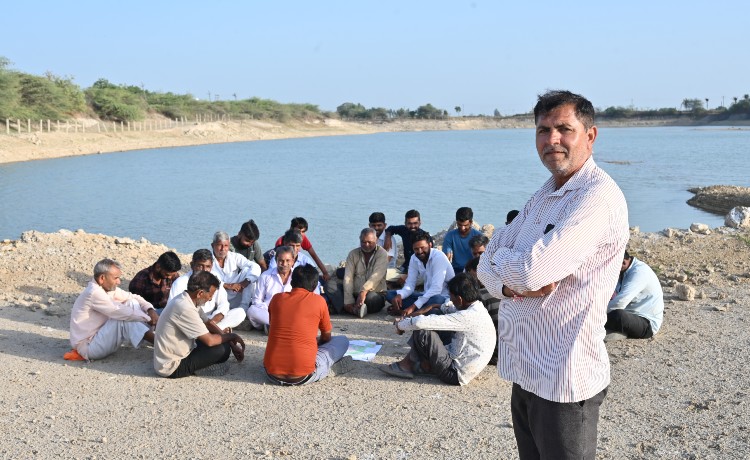Name: Participatory Groundwater
Management
Location: Gir Somnath, Gujarat
Villages: 15
Something different is afoot in Gir Somnath. An area prone to salinity and water scarcity, villagers across 15 villages have come together with ACF to enhance their water literacy and security.
It all started when farmers began experiencing erratic and varied cropping patterns – some growing kharif crops, and others sowing both kharif and rabi crops. Some were irrigating, while others were not - resulting in very ad hoc income levels.
ACF mobilised people into 3 clusters and commenced Participatory Groundwater Management (PGWM), with villagers learning to monitor and manage the groundwater as a common resource, themselves.
Creating a water budget, villagers learnt that they were using 71.93 MCM of water every year, but the water available to them was only 44.42, with 23.94 MCM being lost in runoff.
A ‘Water Security Plan’ was developed, along with a ‘Village Water Policy’, which outlined core rules around water usage, allocation of drinking water and source protection.
Taking a multipronged approach, everyone got to work. Firstly, 8 Bhujal Jankars were appointed – local representatives to help collect data, monitor water usage, conduct a well inventory, install and monitor water usage meters to track irrigation, and sensitise villagers on the results.
A variety of interventions were also identified to boost water supply – recharging 278 wells, renovating 30 check dams along with 15 ponds; construction of 18 new check dams and 29 percolation wells; and interlinking of 3 mine pits to recharge groundwater. Meanwhile, in an effort to curb water demand, farmer education kickstarted on soil moisture conservation and methods to enhance rainwater use efficiency.
To manage and oversee this crucial water work, ACF formed 15 PGWM Committees with training on 12 modules of Participatory Groundwater Management. Whilst it is still early days, the groundswell of support has been heartening, with villagers feeling confident to take back control of the water security scenario of their village.





.png)

0 Comment